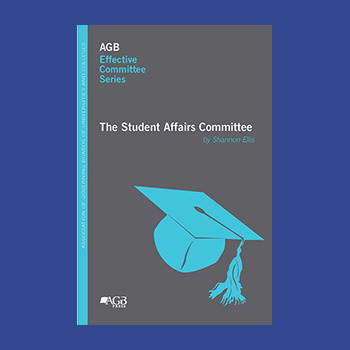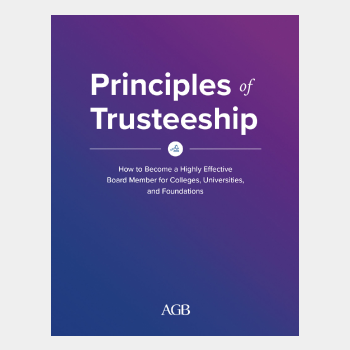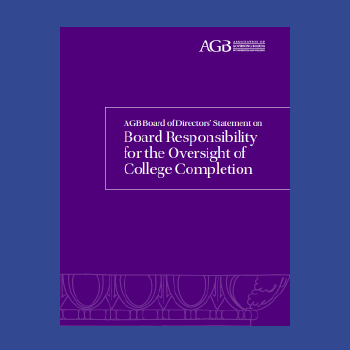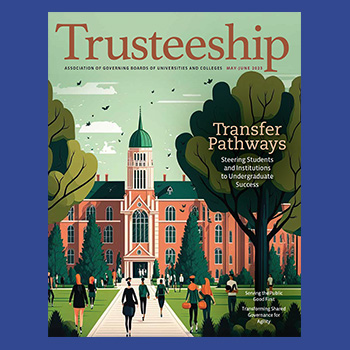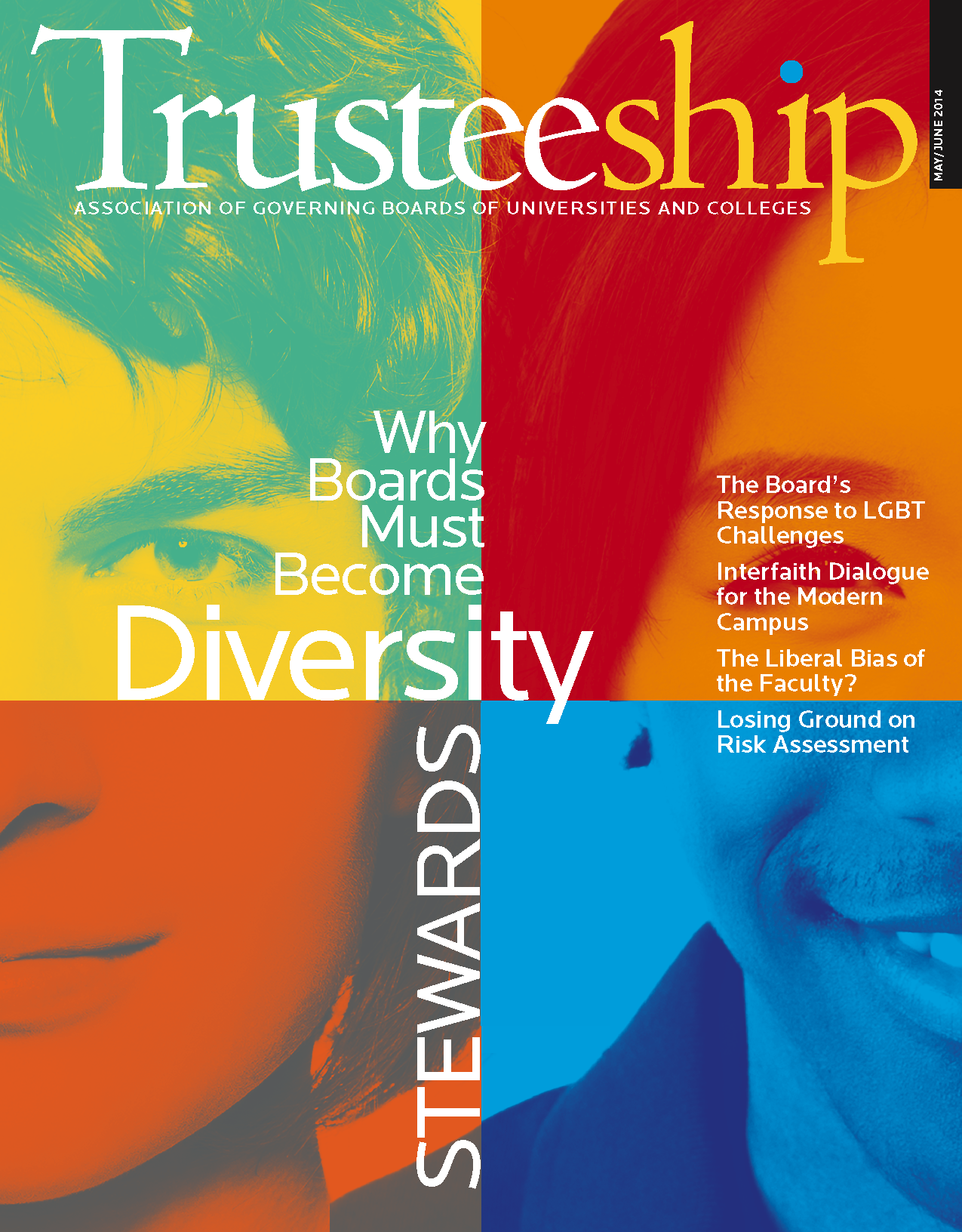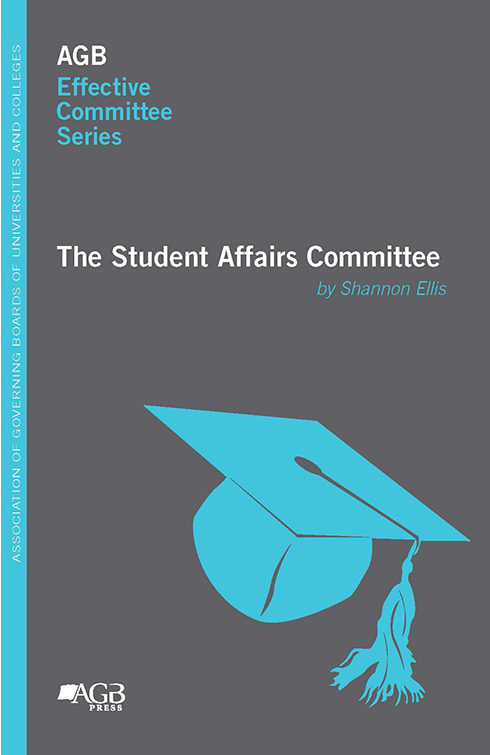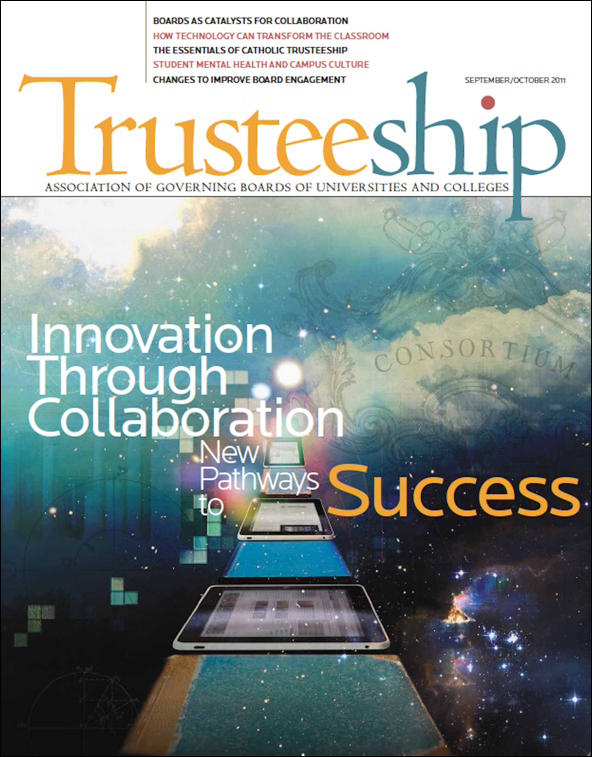Why this is important.
The student affairs committee places current and future students squarely at the center of its work. Trustees’ participation in this committee ensures that other committees, as well as the full board, remain primarily focused on students in order to meet expectations and the charge. The committee is often linked with academic affairs as well as other areas such as research, diversity, workforce development, athletics, technology, and campus safety. Ultimately, committee members achieve their student-focused goals by understanding, supporting, and collaborating with institutional administrators tasked with responsibilities related to student affairs on campus.
Source: The Student Affairs Committee by Shannon Ellis, AGB 2011
Questions for boards.
Click below to reveal key questions for your board to consider:
Fundamentals
Consequential Questions:
- Is our committee work aligned with our institution’s strategic vision, goals, and priorities?
- Does our committee translate our charges into annual goals and work plans that align with the board’s governance responsibilities and our institution’s strategic plan?
- Does our committee pay detailed attention to the specific aspects of student co-curricular activities, as well as matters pertaining to discipline?
- Is our committee aware of landmark legal decisions that impact student affairs work? How familiar are we with the 1990 Americans with Disabilities Act (ADA), the 1974 Family Education Rights and Privacy Act (FERPA), Title IX of the Education Amendments of 1972, and the 1990 Clery Act?
Sources:The Student Affairs Committee by Shannon Ellis, AGB 2011
Discussions
Consequential Questions:
- Is our committee aware of the impact of issues brought before other board committees that deal with academic, research, and fiscal issues as they relate to students?
- How familiar is our board with student demographics such as age, gender, race, geographic origin, family educational history, socioeconomic status, and academic preparation prior to college?
- What are our rates of persistence from year to year and the percentage of students who graduate in four to six years?
Sources:The Student Affairs Committee by Shannon Ellis, AGB 2011
Relationships
Consequential Questions:
- Are our committee meeting agendas concise and do they clearly state desired meeting outcomes?
- Does our committee have a healthy working relationship with the administration? How effectively are we working together to establish policies, practices, and procedures that create conditions for student success?
- Does our committee have a student representative who assists the board in our student affairs work?
Sources:The Student Affairs Committee by Shannon Ellis, AGB 2011
Recommended resources.
We carefully curated these staff-picked resources for you:
The Student Affairs Committee
2011
Shannon Ellis, AGB
Meeting the Needs and Expectations of Generation Z
Trusteeship magazine, July/August 2023
By Scott A. Bass
Transfer Pathways Steer Students and Institutions to Undergraduate Success
Trusteeship magazine, May/June 2023
By David Tobenkin
Mental Health Issues on Campus: Time for New Solutions
Webinar On Demand
Presented by W. Scott Lewis, Aaron “Chip” Reese, and Makenzie Schiemann


